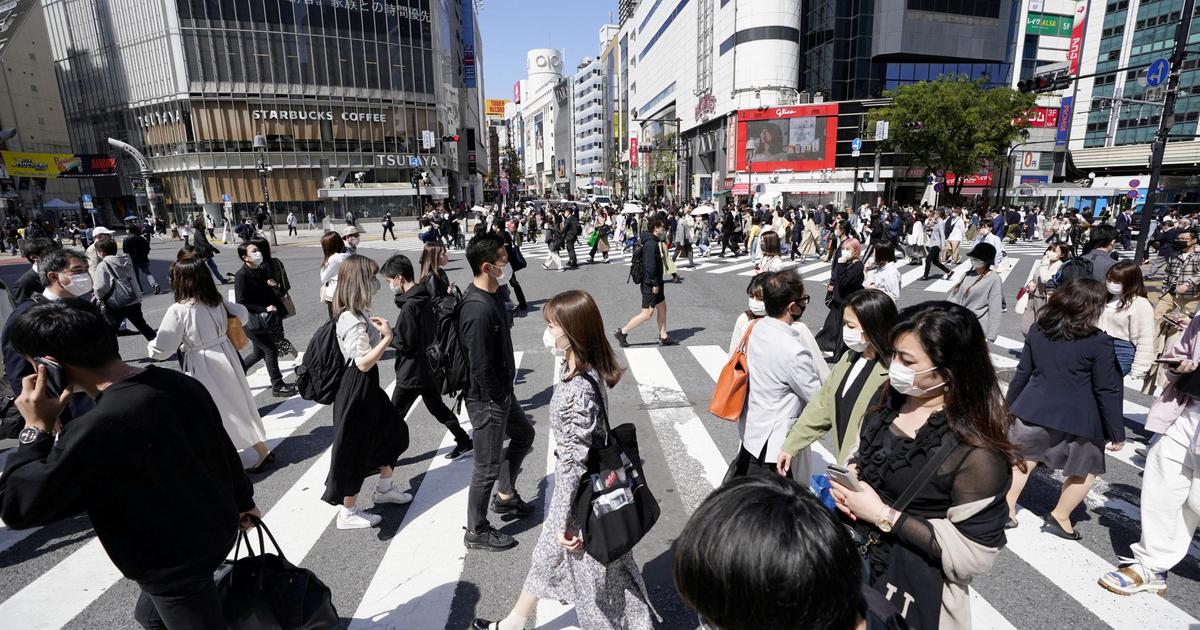Could the rise in cases in China affect Latin America?
5:35
(CNN Spanish) -
Some countries in Europe are experiencing a rebound in cases of covid-19.
Is this a new wave of coronavirus?
Dr. Elmer Huerta explains to us what is happening on that continent.
Also what is happening in Hong Kong and China, which despite their "zero covid-19" policy, are also seeing an increase in cases and deaths from the disease.
You can listen to this episode on Spotify or your favorite podcast
platform
, or read the transcript below.
Hi, I'm Dr. Elmer Huerta and this is your dose of information about the new coronavirus.
Information that we hope will be useful to take care of his health and that of his family.
In recent weeks, the fight against the pandemic has been taking place on two very different battle fronts.
And although we have seen their characteristics separately in the last three episodes, today we will see what they consist of and, above all, what this could imply for the future of the pandemic.
Europe's battle against covid-19
The first battlefront is in Europe, where data from Our World in Data — a platform developed by the University of Oxford — shows us that during the first two weeks of March the number of covid-19 cases has been increasing by several countries of that continent, among them:
advertising
Austria,
Netherlands
Switzerland,
Germany,
Greece,
Finland,
Portugal,
France,
United Kingdom,
Ireland,
Italy,
Belgium.
For its part, the number of hospitalized, although minimally for now, is increasing in the United Kingdom, the Netherlands and Ireland.
What is the significance in this increase in cases?
Is this a new wave that, beginning in Europe, as in previous times, will spread to the rest of the world?
The truth is that no one knows the answer.
Some experts venture to say that this increase in cases could be a consequence of the new BA.2 variant, due to the relaxation of pandemic mitigation measures such as the use of masks and the opening of public and private establishments, or due to a decrease in the levels of antibodies, both to the natural disease and to the vaccines, of the inhabitants of those countries.
The fact is that it is very difficult to determine the cause and the future of this European phenomenon.
It is feared, as has happened before, that it is the beginning of a new global wave.
Without a doubt, it is prudent to wait for the data that will come out of that region in the coming weeks.
Hong Kong registers an increase in covid-19 cases
The second front of the battle against the pandemic is taking place in China, the most populous country in the world, and in that sense, the history of China is closely related to what is happening in Hong Kong.
As we heard in the March 10 episode, the pandemic situation in Hong Kong is critical.
In that special administrative region of China, the pandemic is wreaking havoc and its situation is comparable to that of Latin America during the first wave of the pandemic in 2020, that is, thousands of infections, deaths and collapse of the health system.
In this regard, as of January 31, 2021, 213 deaths had been recorded in Hong Kong, a number that increased to 3,993 as of March 13.
That is, during the last 10 weeks there were 17.7 times more deaths in Hong Kong than during the first two years of the pandemic.
Does the "zero covid-19" policy work?
As we explained in that episode, one of the reasons for this health misfortune is that the Hong Kong government, which had opted for a "zero covid-19" policy, did not emphasize vaccination of its population.
Let us remember that a "zero covid-19" policy is the strategy to fight the pandemic that is based on closing the borders of a region, restricting the entry and exit of people as much as possible, implementing an aggressive infection surveillance system within the country, shutting down entire cities of millions of inhabitants if a single case is found.
Regarding the lack of vaccination, in the first week of March, only 48% of the population over 70 years of age in Hong Kong had received two doses of vaccine and at the beginning of the year, only 25% of the population over 80 years of age had received a dose of vaccine.
But the most worrying fact about Hong Kong's situation is its proximity to mainland China.
In this regard, because Hong Kong is in proximity to the city of Shenzhen, in an effort to escape the situation, many of its residents are trying to enter China illegally, with the danger of bringing the infection to a country that continues to bet for the "zero covid-19" policy.
In this sense, and as described in an article by The Washington Post, it was reported that the authorities inspected houses in that city, checking cabinets and even under beds in search of possible cases of covid-19, brought by residents who crossed illegally. from Hong Kong.
In the second weekend of March, 150 cases of covid-19 have been found in Shenzhen, which is why a quarantine has been declared from March 15 to 20, and electronics factories have been ordered to close.
What happens in China?
But the seriousness of the pandemic in China goes beyond Shenzhen.
For the first time since the start of the pandemic in China, an entire province has been quarantined.
At the beginning of the pandemic, Hubei province, where the city of Wuhan is located, was completely isolated and quarantined.
Now the same has been done with Jilin province in northeast China.
Giving an idea of the seriousness of the situation, it has been learned that in Jilin province, due to the fact that only on Saturday, March 13, 4,605 cases had been confirmed and there were 3,868 more to be confirmed, the authorities have ordered the construction of four temporary hospitals to house to 10,000 people.
Similarly, in Shanghai, a city of 24 million inhabitants, urban transport has been suspended and the population has been asked not to go outside if it is not necessary.
On the other hand, with cases being found in other cities, with cases rising from a few dozen in February to more than 5,100 on Tuesday, March 15, an estimated 37 million people are in quarantine in China.
The role of natural immunity
In my opinion, isolating China, due to the mistaken "zero covid-19" policy, has left 1.4 billion people without natural immunity, since they have never had the infection.
85% of the population have obtained their immunity using the Chinese Sinopharm and CoronaVac vaccines, which can protect against serious illness and death, but have low effectiveness in preventing infection, which in vulnerable people can be serious.
In this regard, mathematicians from Peking University project that without zero tolerance, if the infection spreads, there could be 630,000 daily cases of covid-19 in that country, which could cause an undetermined number of hospitalizations and serious cases.
A potential danger of such a high number of infections could be the formation of new variants, which could spread to the rest of the world.
In short, the pandemic is not over, and we must be attentive to what may come from Europe and China.
Do you have questions about covid-19?
Send me your questions on Twitter, we'll try to answer them in our next episodes.
You can find me at @Drhuerta.
If you find this
podcast
useful, be sure to subscribe to get the latest episode on your account and help others find it by rating and reviewing it on your
favorite
podcast app.
And for the most up-to-date information, you can always head to CNNEspanol.com.
Thanks for your attention.
coronavirusCovid-19















